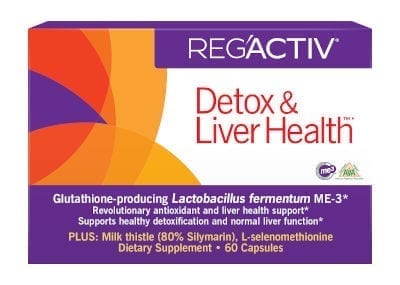A good gut makes for a great mind!!
By Ross Pelton, RPh, PhD, CCN
It is estimated that over one-third of Americans age 85 and older have Alzheimer’s disease, which is the most common form of dementia.i A recently published study reported finding that people with dementia have higher amounts of certain strains of harmful bacteria their colon compared to non-demented people of a similar ageii.
This groundbreaking study compared 128 patients, average age 74, who were attending a memory loss clinic with individuals who did not have dementia. According to the researchers, individuals with dementia were found to have the following:
- substantially lower colon levels of Bacteroides (enterotype I), which are healthful bacteria that decrease inflammation and help to lower high cholesterol and high blood pressure
- significantly increased harmful colon bacteria of enterotype III that increase inflammation
- higher stool concentrations of ammonia, indole, skatole, and phenol that are produced by harmful colon bacteria when they try to invade colon cells.
- MRI results showing substantially greater evidence of brain bleeds and strokes
Numerous studies have shown that what you eat determines the types of bacteria live in your colon and that certain strains of bacteria can alarm your immune system, causing inflammation, which increases the risk for dementia.iii
You can encourage the growth of beneficial bacteria in your colon and discourage the harmful bacteria by:
- Consuming a diet that is high in fiber-rich foods such as vegetables, fruits, beans, nuts, seeds and whole grains.iv
- Reducing consumption of meatv,processed carbohydratesvi and fried foodsvii.
- Taking Dr. Ohhira’s Probiotics regularly. Dr. Ohhira’s Probiotics contain probiotics, prebiotics and over 400 postbiotic metabolites. The postbiotic metabolites help induce changes in the microbiome ecosystem from a state of dysbiosis back towards a more balanced, healthy microbiome.
Studies report a strong association between inflammation and dementia.viii One study described that inflammation during mid-life is associated with cognitive decline 20 years later.ix Results from a large prospective study showed that dementia is associated with anything that causes inflammation to damage blood vessels (diabetes, hypertension, smoking, lack of exercise, obesity), even in people who have not had a stroke.
The Bottom Line: Taking Dr. Ohhira’s Probiotics on a daily basis will keep your intestinal tract filled with predominantly good bacteria, which reduces inflammation and decreases your risk of cognitive decline. A good gut makes for a great mind!!





